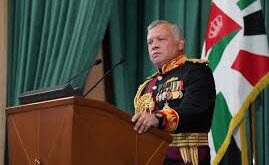Rand Paul
History will remember this aggression, not as genius, but as folly.
Realism in foreign policy means that tactics and strategy change as the facts on the ground change. The best tools for deterring Vladimir Putin’s invasion of Ukraine are less relevant now that Russia has invaded.
Prior to Putin’s invasion, sanctions and threats of an embargo were levers to deter his ambition. Many sanctions were levied, including sanctions on the Nord Stream II pipeline from Russia to Germany. Absent an invasion, many diplomats considered sanctions or an embargo provocative, akin to killing the hostage without seeking any demands.
Arguably, the German threat of scuttling the Nord Stream II pipeline was muted and Putin believed the Germans were bluffing. The Germans might respond that their threat was explicitly written into an agreement made with the United States to refuse to let Russia use energy as a weapon.
But truth be told, the Germans were not as explicit as they could have been, as least publicly, to signal that they were serious about canceling Nord Stream II. With a former German chancellor, Gerhard Schröder, sitting on the boards of Nord Stream AG and the Russian energy company Rosneft, the message was sent to Russia that perhaps the German government’s threats to Nord Stream II were a wink and a nod.
All that is now water under the bridge.
We live in a new world, where Putin has shown his stripes and invaded another sovereign nation. History will remember this aggression, not as genius, but as folly. Time will show Putin miscalculated not only the will of Ukrainian resistance but the coalescing of European and American wills to oppose him.
Imposing sanctions in advance of the invasion made little sense because there was no definable action by Russia that would lead to the removal of the sanctions. The same argument can be made of dozens of sanctions against China, Iran, and North Korea. Without specific demands, these sanctions simply collect and fester as annoyances but historically have not brought about the desired changes of behavior.
While sanctions in advance of the invasion did not deter Putin, the question is will more severe sanctions, or even a more complete refusal to buy Russian petrochemicals, change Russia’s behavior now? The answer is unknown but, at this point, the argument that sanctions might provoke an invasion is moot. Most importantly, imposing sanctions now can be linked to a specific demand, namely that Russia leave Ukraine.
Diplomacy requires give and take but diplomacy is virtually impossible in the midst of an invasion. Before the invasion, admitting Ukraine to NATO was extremely provocative but had been bandied about for twelve years without progress. The situation was more of an irritant to Russia than a reality. From Russia’s perspective, admitting Ukraine to a military alliance against Russia would be akin to admitting Mexico to a military alliance with Russia against the United States.
Yet, if stopping Ukraine’s admission to NATO was Putin’s chief goal, he could have easily continued to negotiate. After Putin’s invasion, the calls to admit Ukraine to NATO are louder and better received. Admitting Ukraine to NATO is still a bad idea and might lead to a world war but let’s not pretend that keeping Ukraine out of NATO was Putin’s primary goal. His primary goal is quite obvious—reconstituting a Russian empire.
War sometimes ends with unconditional surrender. I doubt this will be the case in Ukraine because Putin clearly did not anticipate the level of resistance from the Ukrainian people. Should Russia kill the Ukrainian president, I predict the result will be a prolonged war or insurgency. Putin hasn’t considered that the people of an occupied Ukraine might decide to sabotage the Russian pipeline that crosses their land. Putin did not anticipate the effect of united, severe sanctions from all of Europe and the United States. Putin has not pondered what it will be like to occupy a fiercely angry nation.
More often than not, war ends with some form of negotiation. But how does Ukraine negotiate any of its land away? Before the invasion, Crimea’s fate seemed certain to remain a part of Russia. But I find it unlikely to be conceded in a negotiated settlement. Likewise, I find it unlikely Ukraine agrees to cede any of eastern Ukraine.
It is more likely that even a militarily occupied Ukraine fights on and on, killing occupying soldiers one by one with no end in sight.
I still believe that the one carrot Ukraine could offer, if it meant Russia’s complete removal from Ukraine, would be to remain a neutral country with one foot in the East and one in the West.
The hawks in Congress will gnash their teeth and lament that no such promise should ever be made but a promise of neutrality gives up nothing and actually positions Ukraine to have both Russia and Europe compete for her interest.
Any such agreement, I fear, only comes about if and when Ukraine succeeds in making the price of occupation unacceptable to Russia. While I will hope for saner minds without the bloodshed, I fear Ukraine has a long and violent road ahead.
Rand Paul is a U.S. senator from Kentucky.
 Geostrategic Media Political Commentary, Analysis, Security, Defense
Geostrategic Media Political Commentary, Analysis, Security, Defense





